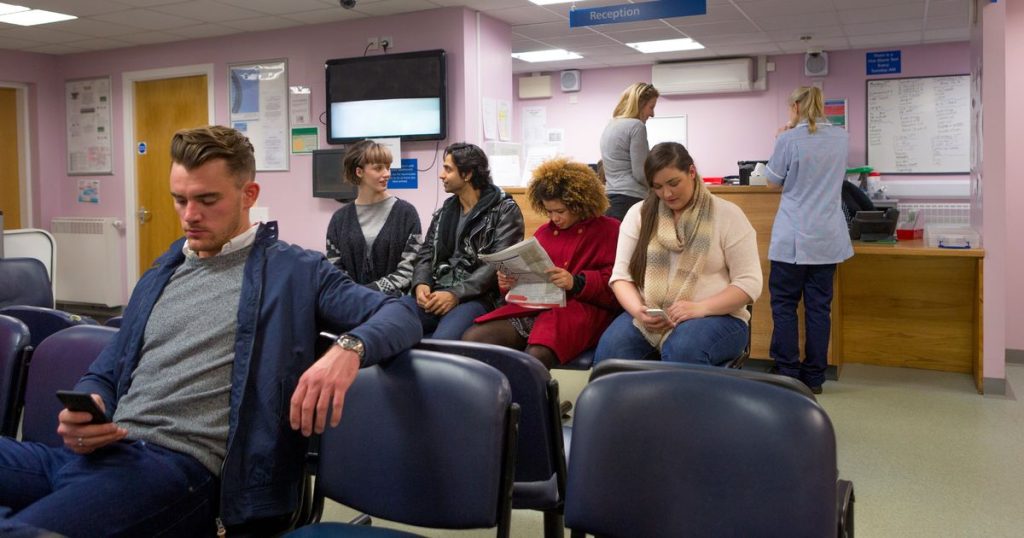The NHS “postcode lottery” is a term that refers to variations in the provision and quality of public services across different areas of the country, including access to GP appointments. Some patients may have to wait over three weeks to see a GP, with certain regions faring much worse than others. In some areas, patients are five times more likely to face longer wait times compared to others. For example, Gloucestershire had the highest ratio of appointments taking place more than three weeks after being booked. Living in a particular area, or even on the “wrong” side of a road, could lead to poorer care and limited access to certain services. These disparities challenge the idea of a universal healthcare service.
In March, 13.1 million appointments were scheduled at GP practices in England, with over 2.8 million appointments booked more than three weeks in advance. This represents an increase in wait times compared to previous months. In regions like Gloucestershire, more than one out of every six appointments were delayed beyond three weeks. In contrast, areas like North Central London had the lowest proportion of appointments with extended wait times. A majority of patients were able to see their GP within a week of booking, while same-day appointments accounted for a significant percentage of all appointments. The NHS has been approached for comment on these disparities.
The issue of the “postcode lottery” in NHS services highlights the unequal access to healthcare based on geographical location. Patients in certain regions face longer wait times to see their GP, which can impact the timeliness and quality of care they receive. The variations in service provision challenge the notion of a universal and comprehensive healthcare system. Some patients may resort to private healthcare if they cannot access the services they need within a reasonable timeframe. The disparities between regions raise concerns about the equity and fairness of healthcare services across the country.
The interactive tool allows individuals to compare the performance of their area in terms of GP appointment wait times. By entering their postcode, users can see how their region fares in relation to others across the country. This tool provides a visual representation of the disparities in service provision and access to GP appointments. It can help individuals understand how their location may impact the quality and timeliness of healthcare services they receive. By raising awareness of these issues, the tool aims to highlight the need for more equitable healthcare provision across regions.
The data from March shows that a significant number of GP appointments are scheduled well in advance, indicating longer wait times for some patients. Regions like Gloucestershire, Norfolk and Waveney, Dorset, and Derby and Derbyshire had higher proportions of appointments with extended wait times. In contrast, London regions like North Central, North East, North West, and South West had lower wait times for GP appointments. The differences in wait times suggest a lack of consistency in service provision across the country, reinforcing the idea of a “postcode lottery” in healthcare access.
Overall, the findings reveal the complexities of healthcare access within the NHS system and the challenges patients face in obtaining timely GP appointments. The disparities in wait times across regions underscore the need for a more equitable healthcare provision that ensures all patients have access to timely and quality care, regardless of their geographical location. By using the interactive tool, individuals can gain insight into the performance of their area and advocate for improved healthcare services in their region. Addressing these disparities is crucial in ensuring a fair and accessible healthcare system for all patients.


